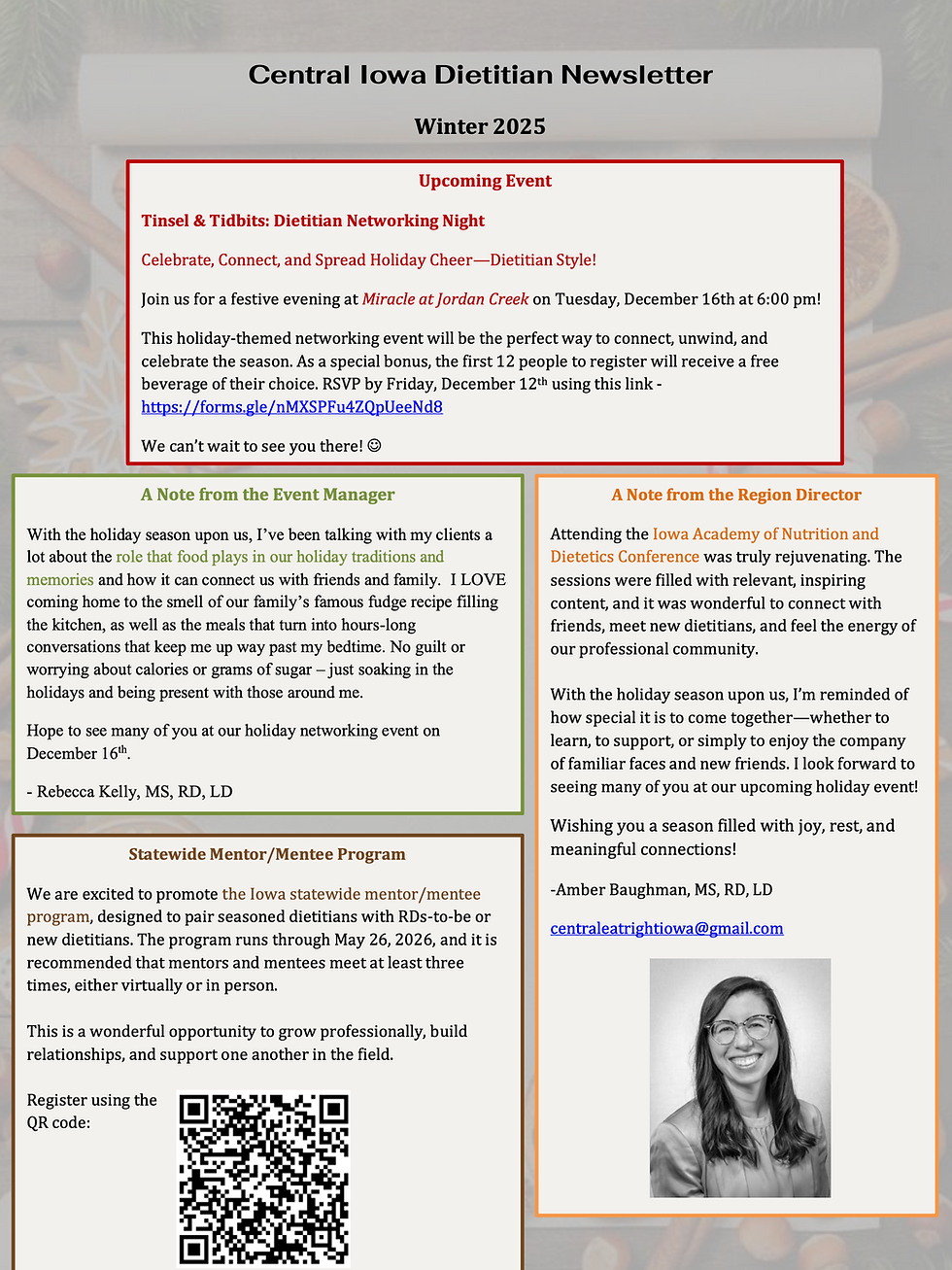Coronavirus and Food Implications
- Apr 1, 2020
- 2 min read
Many things during this season feel out of our control. COVID-19 has caused strain on individuals, families, businesses, and institutions like education and healthcare. For many people, food has become a common concern during this time. Some people who were already food insecure find themselves without enough to eat. Others may find it difficult to navigate a new pattern with food in this time of uncertainty.

Here are some things we, as individuals, can control when it comes to food during this time:
1.Stock your pantry, but don’t panic-buy: For those with the resources to stock up, do so responsibly. Keep enough food at home to sustain you and your family for about 2 weeks. But don’t panic and buy 6 months-worth of items or take the last of goods that other people may also need.
2.According to the CDC, Coronavirus spreads from person-to-person contact, not through food or food packaging. If you are someone who feels well and comfortable ordering takeout from restaurants during this time, it can be a good way to support local businesses.
3.Avoid sharing memes or internet posts about gaining weight during the Coronavirus outbreak. This can be offensive and detrimental to the mental health of those with disordered eating, eating disorders, or food insecurity (not being able to purchase enough to eat).
4.If you know a friend or family member who is older (60 years and above) and/or has a chronic disease that can compromise their immune system, offer to get their groceries and drop them at their door. These groups of people are more susceptible to severe Coronavirus and could benefit from staying at home and away from the public as much as possible.
5.WASH YOUR HANDS!
•When: After using the restroom, after coughing, sneezing, or blowing your nose, before cooking/preparing food, after anytime you may touch raw meat or eggs during food preparation, after anytime you touched a dirty surface, before eating/serving food, and after feeding your pet food or treats, etc.
•How: Using warm water, wet your hands, apply soap, lather/scrub your hands for 10-15 seconds, rinse hands, and dry with a clean cloth towel or paper towel. The whole handwashing process should take at least 20 seconds. Washing hands properly is more effective at killing viruses than using hand sanitizer!
Resources:
1. News release by Ruth Litchfield and Sarah Francis, Iowa State University Extension and Outreach. https://www.extension.iastate.edu/news/prepare-your-pantry-dont-panic
2. CDC guidance on Coronavirus. https://www.cdc.gov/coronavirus/2019-ncov/index.html
3. Iowa Department of Public Health guidance on Coronavirus. https://idph.iowa.gov/emerging-health-issues/novel-coronavirus 4. Academy of Nutrition and Dietetics guidance and tips for Coronavirus. https://www.eatright.org/coronavirus

Blog Provided By Ann Parker












Comments